21 Delicious Fermented Foods From Around The World For Natural Gut Healing
Fermentation isn’t just a preservation trick from the past—it’s one of the world’s oldest and most delicious forms of natural medicine. Across cultures and continents, fermented foods have quietly fueled our bodies with live bacteria that do more than just add flavor—they help heal. Packed with probiotics, these culinary staples support digestion, boost immunity, and even influence mood through the gut-brain axis. But beyond the buzzwords, fermented foods are living traditions: cabbage transformed into spicy Korean kimchi, milk bubbling into tangy Eastern European kefir, soybeans slowly becoming rich, umami-packed miso. Every culture has its own gut-friendly secret, and we’re bringing them to your plate. We’ve expanded our list to 21 Delicious Fermented Foods From Around the World for Natural Gut Healing—a global tour of pickled, soured, cultured, and brewed wonders that do more than satisfy hunger. They nourish the gut, revive the body, and connect us to generations of wisdom—one bite at a time.
1. Kimchi: Korea's Spicy Probiotic Powerhouse
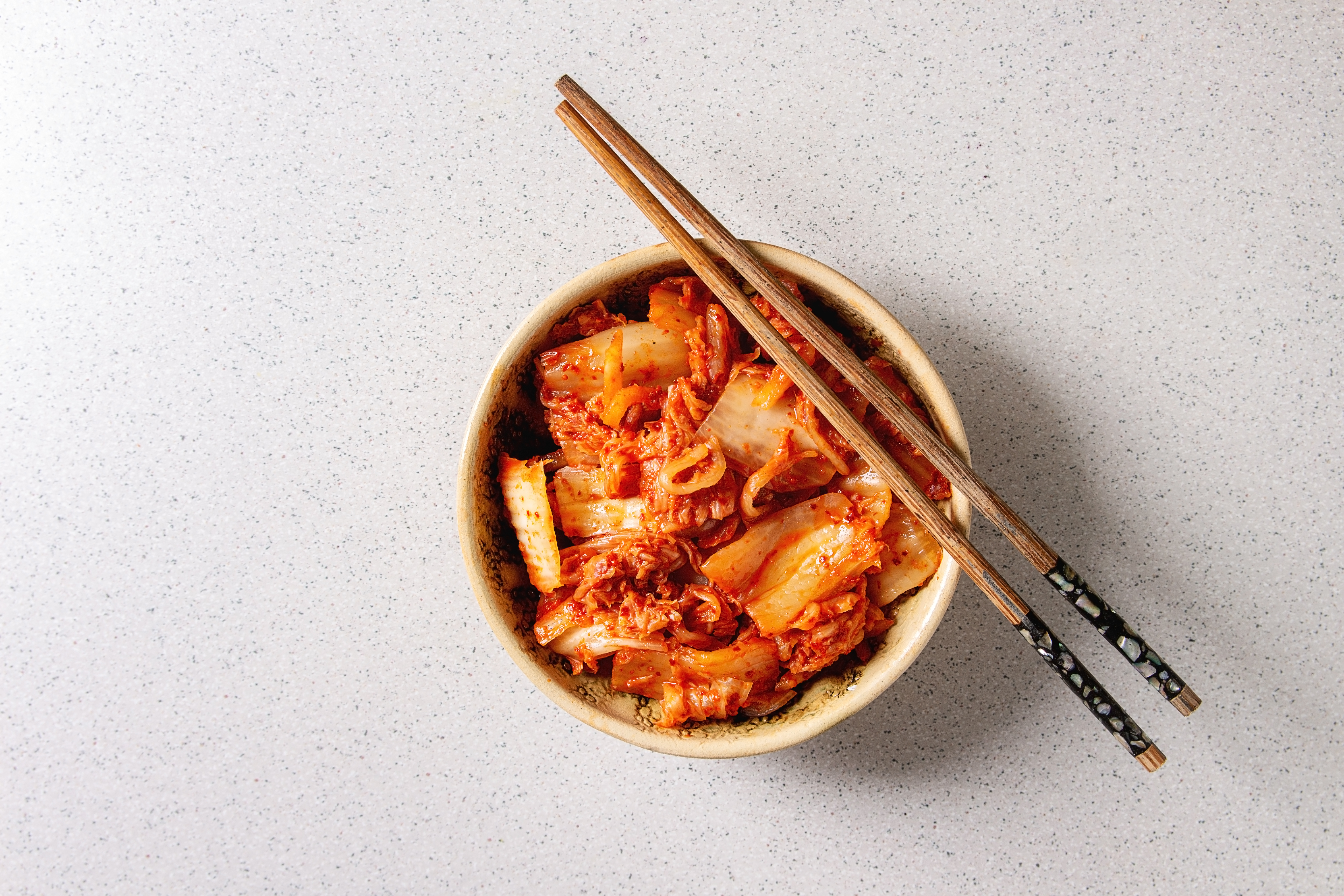
Kimchi, a staple in Korean cuisine, is a fermented vegetable dish known for its spicy and tangy flavor. Typically made from napa cabbage and Korean radishes, it is seasoned with chili pepper, garlic, ginger, and salted seafood, which contributes to its unique taste. The fermentation process, which can last from a few days to several weeks, allows beneficial lactic acid bacteria to thrive, making kimchi a potent source of probiotics. These probiotics are instrumental in promoting gut health by enhancing digestion and boosting the immune system. Furthermore, kimchi is rich in vitamins A, B, and C, and contains antioxidants that help fight inflammation. Consuming kimchi regularly has been linked to improved gut flora balance, reduced cholesterol levels, and better metabolic health, making it a delicious and nutritious addition to any diet.
2. Sauerkraut: Germany's Tangy Gut Protector
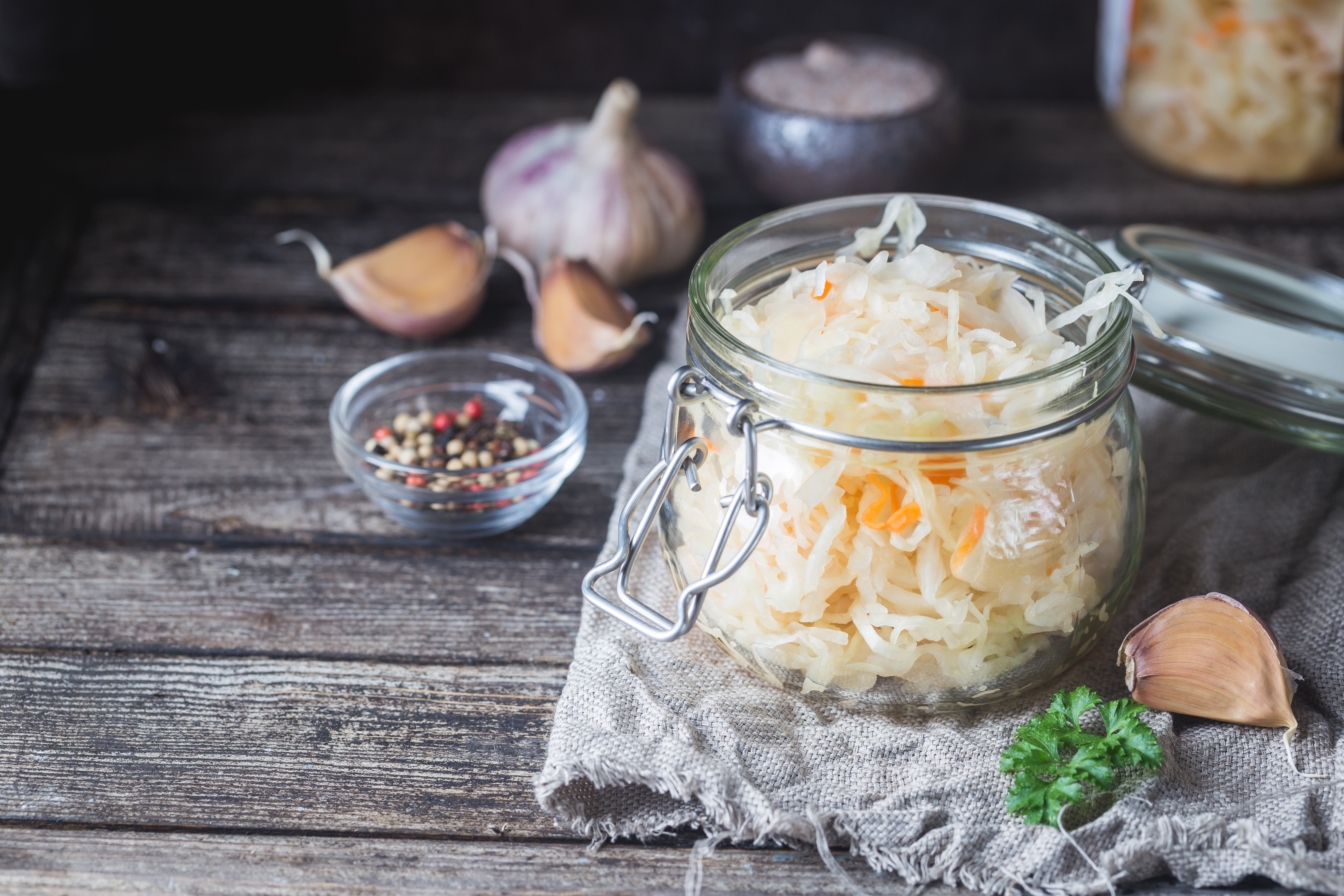
Sauerkraut, literally meaning "sour cabbage" in German, is a fermented cabbage dish that has been a dietary staple in Central and Eastern Europe for centuries. The fermentation process involves finely shredding cabbage and layering it with salt, which draws out the natural juices and creates an environment conducive to the growth of beneficial bacteria. This process not only preserves the cabbage but also enhances its nutritional profile, making it rich in probiotics, vitamins C and K, and fiber. Sauerkraut's probiotics have been shown to improve digestion, strengthen the immune system, and even reduce symptoms of anxiety and depression by positively influencing gut-brain communication. Incorporating sauerkraut into meals can be as simple as adding it to sandwiches, salads, or as a side dish, offering a tangy flavor and a boost to gut health.
3. Kefir: The Ancient Elixir from the Caucasus
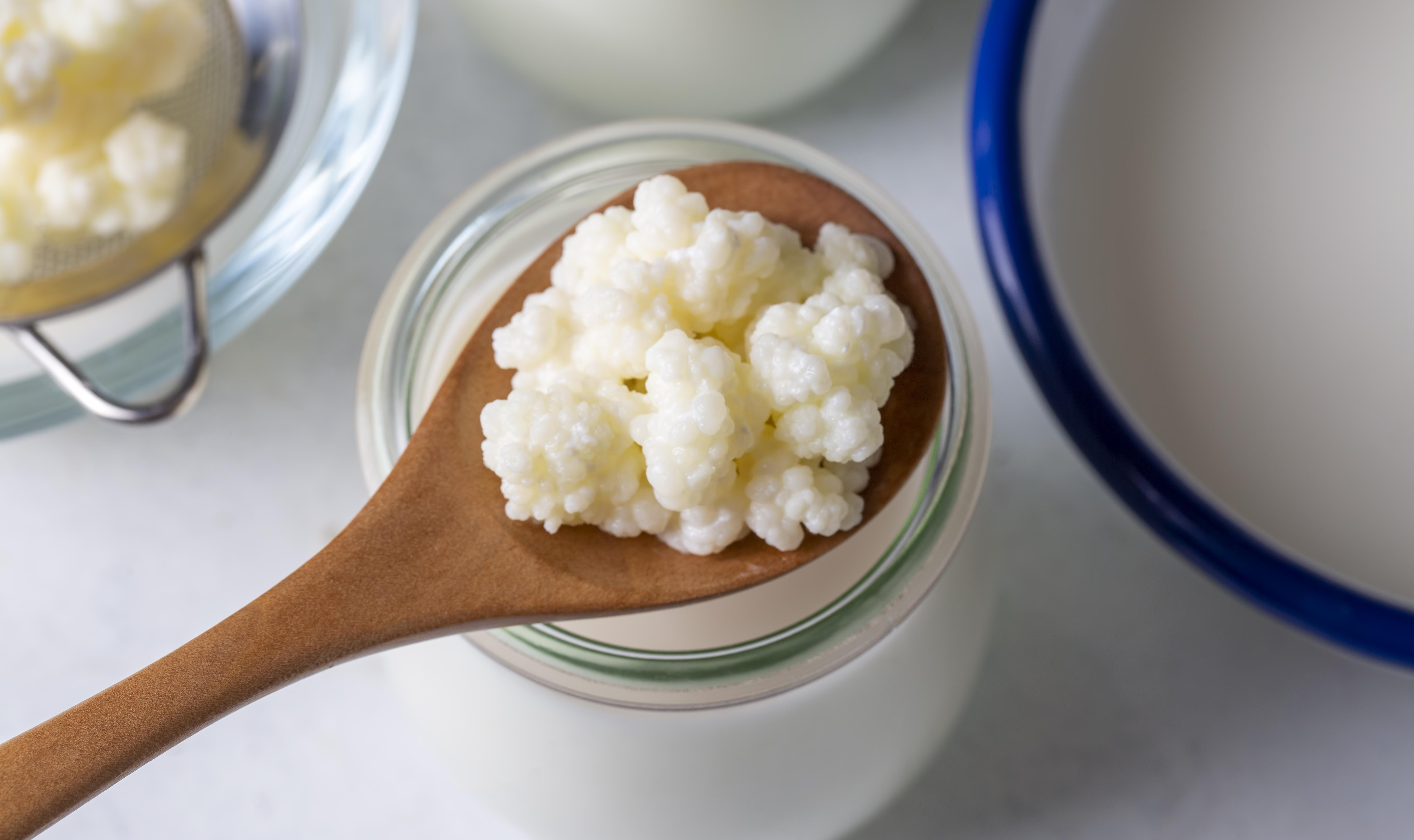
Kefir is a fermented milk drink originating from the Caucasus Mountains, known for its creamy texture and slightly sour taste. It is made by adding kefir grains, a mixture of bacteria and yeasts, to milk, which ferments the lactose and produces a probiotic-rich beverage. Kefir is a powerhouse of nutrients, including calcium, protein, and a wide variety of vitamins and minerals. Its probiotic content is diverse, containing several strains of beneficial bacteria and yeasts that can colonize the gut, improve digestion, and enhance immune function. Studies have shown that regular consumption of kefir can help alleviate lactose intolerance, lower blood pressure, and reduce inflammation. With its versatile use in smoothies, dressings, or as a refreshing drink, kefir is an excellent way to support gut health and overall well-being.
4. Miso: Japan's Umami-Rich Fermented Paste
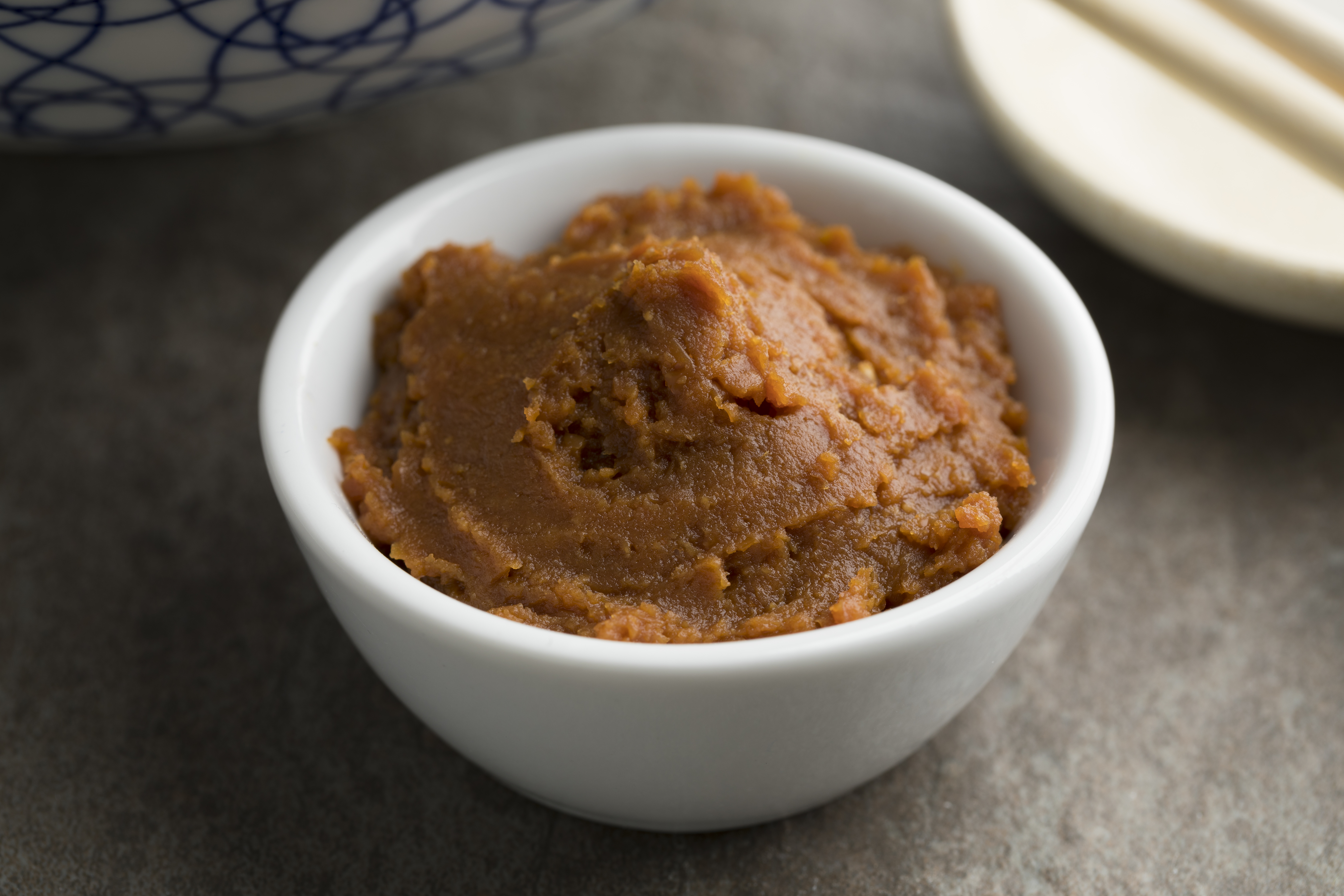
Miso is a traditional Japanese seasoning produced by fermenting soybeans with salt and kōji, a type of fungus. The result is a thick paste used in a variety of Japanese dishes, most notably miso soup. This fermentation process can take anywhere from a few weeks to several years, depending on the desired flavor profile. Miso is rich in essential nutrients, including protein, vitamins, and minerals, and is an excellent source of probiotics that aid in digestion and boost the immune system. The umami flavor of miso adds depth to soups, marinades, and dressings, making it a versatile ingredient in both traditional and modern cuisine. Regular consumption of miso has been linked to improved gut health, reduced risk of certain cancers, and lower blood pressure. Its ability to enhance flavor while providing health benefits makes miso a valuable addition to any diet.
5. Tempeh: Indonesia's Protein-Packed Fermented Soy
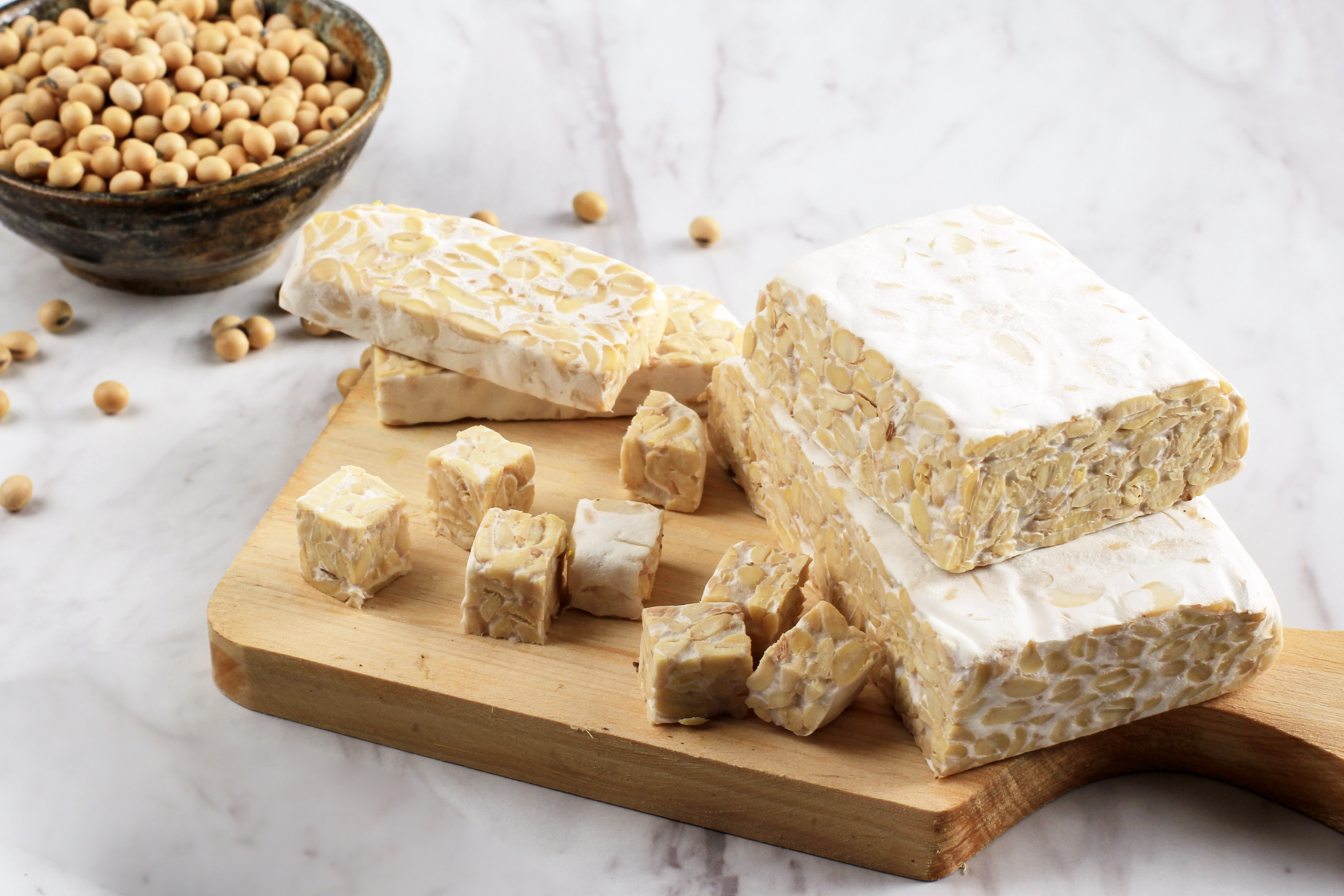
Tempeh is a traditional Indonesian food made from fermented soybeans. Unlike tofu, which is made from soy milk, tempeh is made from whole soybeans, giving it a firmer texture and higher nutritional content. The fermentation process, which involves a specific type of mold, binds the soybeans into a cake-like form and enhances their digestibility and nutrient profile. Tempeh is rich in protein, fiber, and a variety of vitamins and minerals, making it an excellent meat substitute for vegetarians and vegans. The probiotics produced during fermentation support gut health by improving digestion and nutrient absorption. Tempeh can be cooked in a variety of ways, including grilling, steaming, or stir-frying, and its nutty flavor makes it a versatile ingredient in numerous dishes. Incorporating tempeh into the diet can contribute to better gut health and provide essential nutrients for overall health.
6. Kombucha: The Fizzy Tea with a Fermented Twist
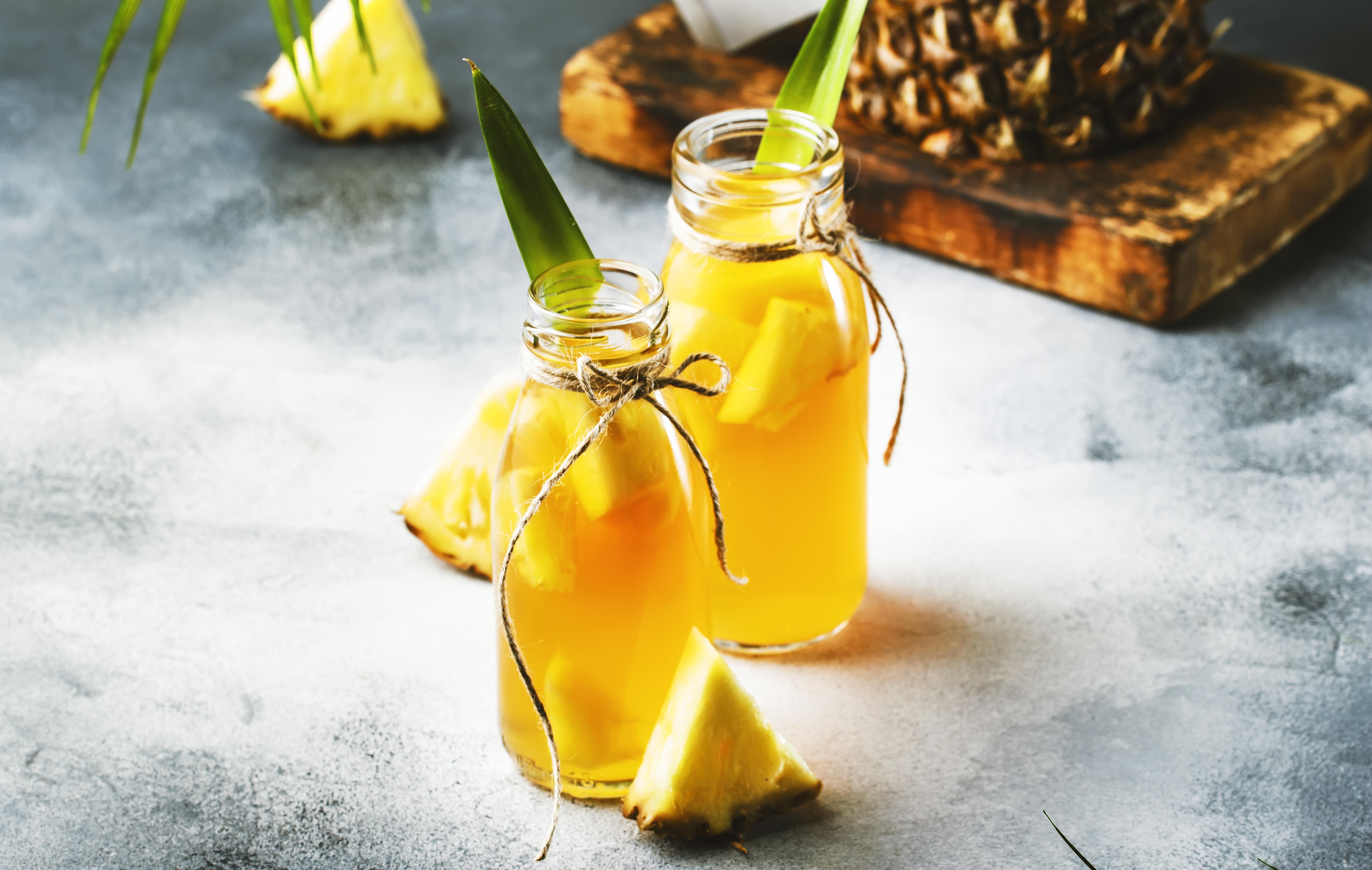
Kombucha is a fermented tea beverage that has gained popularity worldwide for its potential health benefits. Made by fermenting sweetened tea with a symbiotic culture of bacteria and yeast (SCOBY), kombucha is slightly effervescent and has a tangy, vinegar-like flavor. The fermentation process produces a variety of organic acids, vitamins, and probiotics that contribute to its health-promoting properties. Kombucha is believed to aid digestion, boost the immune system, and detoxify the body. Its probiotic content helps maintain a balanced gut flora, which is essential for overall health. While scientific research on kombucha is still limited, anecdotal evidence and traditional use suggest its potential benefits. With a variety of flavors and brands available, kombucha can be a refreshing and healthful addition to a balanced diet.
7. Natto: Japan's Sticky Fermented Soybeans
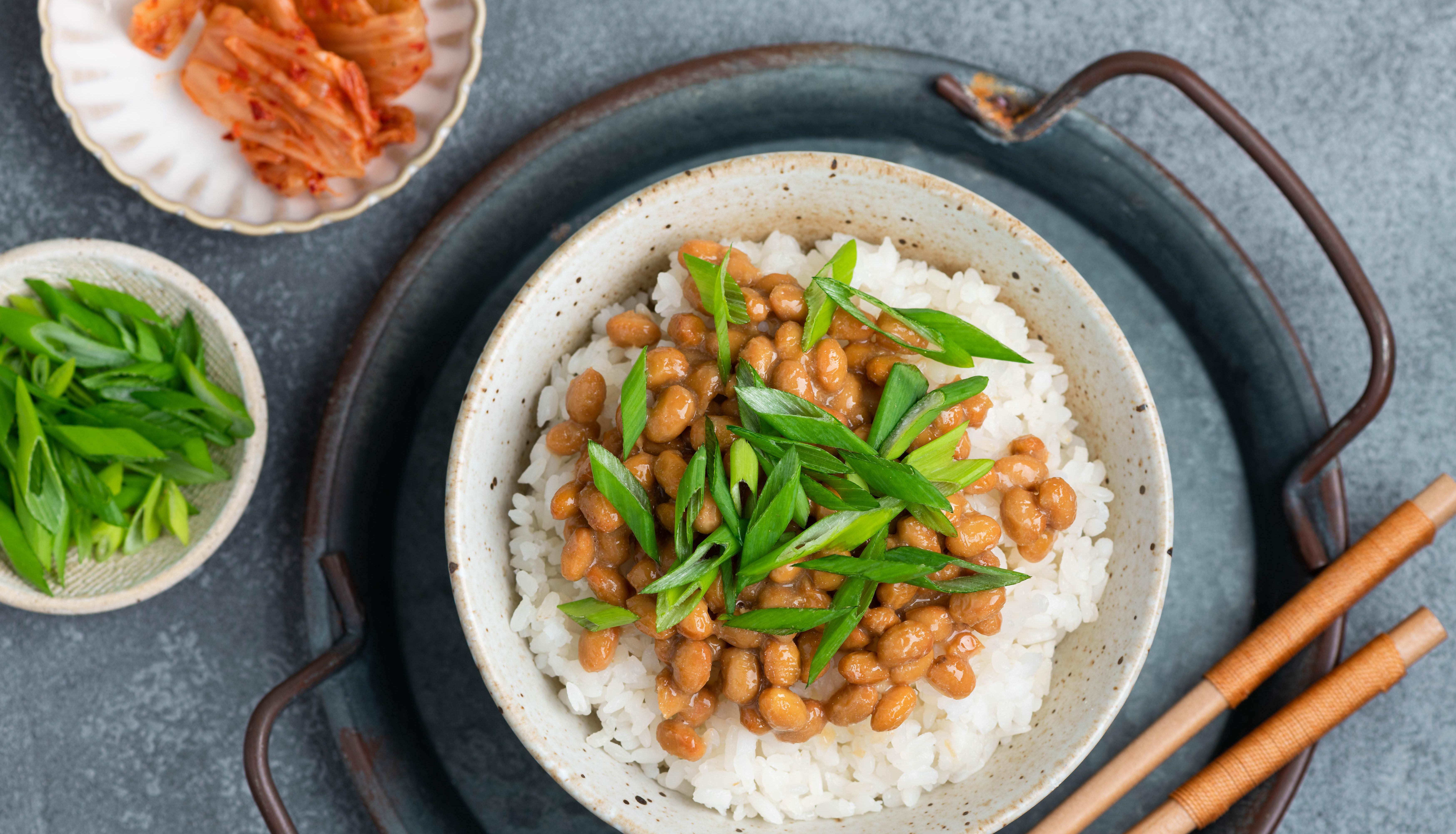
Natto is a traditional Japanese food made from fermented soybeans, known for its strong smell, sticky texture, and unique taste. Despite its polarizing characteristics, natto is highly nutritious and offers numerous health benefits. The fermentation process involves the bacterium Bacillus subtilis, which breaks down the soybeans and produces a potent enzyme called nattokinase. This enzyme is believed to have cardiovascular benefits, such as reducing blood clot formation and lowering blood pressure. Natto is also rich in protein, vitamins, minerals, and probiotics that support gut health and digestion. Its high vitamin K2 content is essential for bone health and cardiovascular function. While natto's flavor and texture may be an acquired taste, its health benefits make it a valuable addition to the diet. It can be eaten on its own, mixed with rice, or used as a topping for various dishes.
8. Yogurt: The Creamy Classic for Gut Health

Yogurt is one of the most widely consumed fermented foods globally, known for its creamy texture and mild flavor. It is made by fermenting milk with specific strains of bacteria, primarily Lactobacillus bulgaricus and Streptococcus thermophilus. These bacteria convert lactose into lactic acid, giving yogurt its characteristic tang and thick consistency. Yogurt is an excellent source of probiotics, which promote a healthy balance of gut bacteria and improve digestion. It is also rich in calcium, protein, and vitamins, making it a nutritious addition to any diet. Regular consumption of yogurt has been associated with improved gut health, enhanced immune function, and reduced risk of certain chronic diseases. With a wide variety of flavors and types available, including Greek yogurt and dairy-free alternatives, yogurt is a versatile and delicious way to support gut health.
9. Kvass: Eastern Europe's Bread-Based Beverage
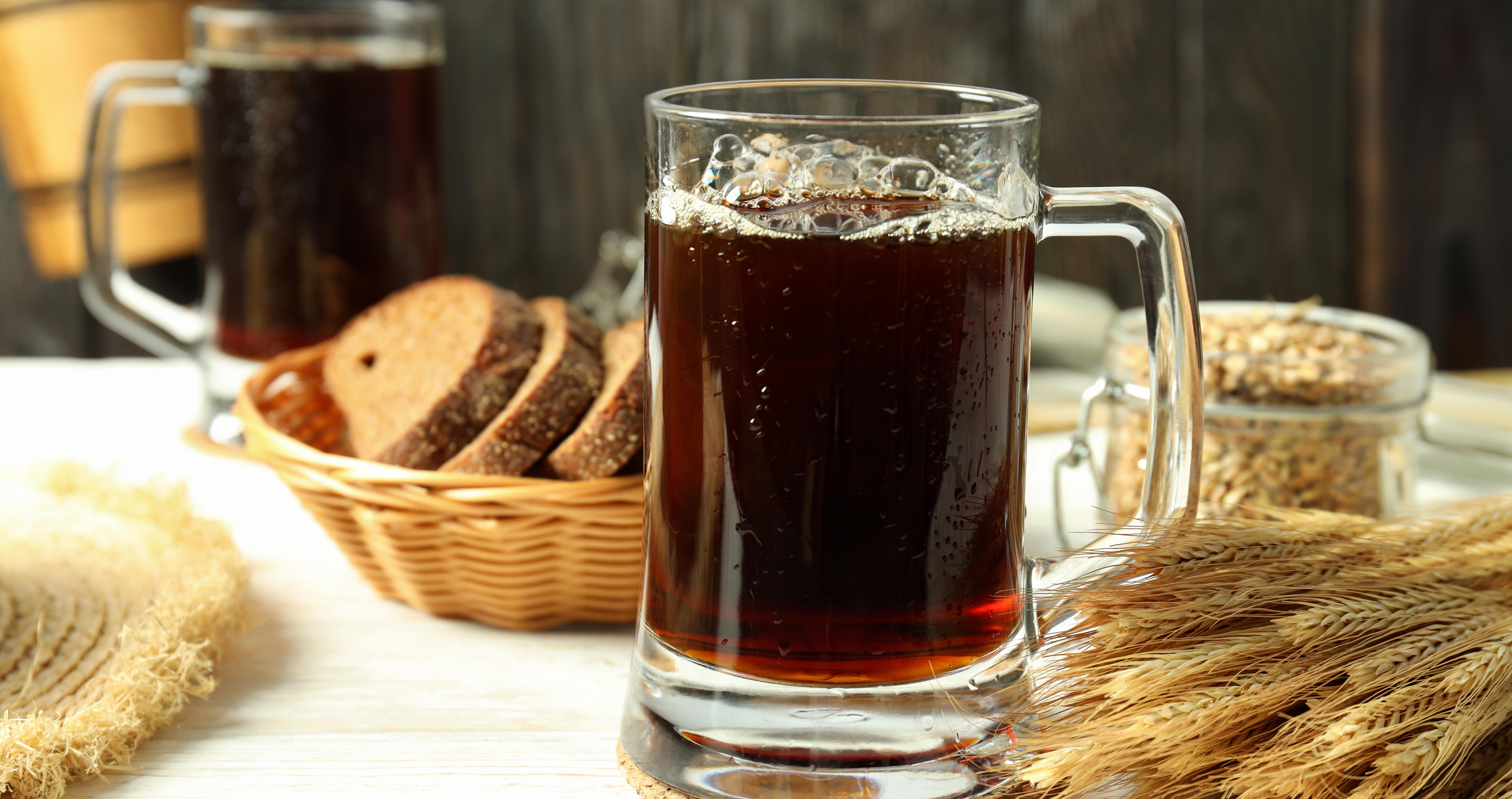
Kvass is a traditional fermented beverage from Eastern Europe, made from rye bread, water, and sugar. The fermentation process, which involves natural yeasts and bacteria, gives kvass its slightly sour and refreshing taste. Kvass is rich in probiotics and vitamins, particularly B vitamins, which support energy metabolism and overall health. Its probiotic content helps maintain a healthy gut flora balance, promoting digestion and boosting the immune system. Kvass has been consumed for centuries as a refreshing and healthful drink, often flavored with fruits, herbs, or honey. While it is less well-known outside of Eastern Europe, kvass is gaining popularity as a unique and nutritious alternative to sugary soft drinks. Incorporating kvass into the diet can provide a natural source of probiotics and contribute to overall well-being.
10. Lassi: India's Cooling Fermented Yogurt Drink
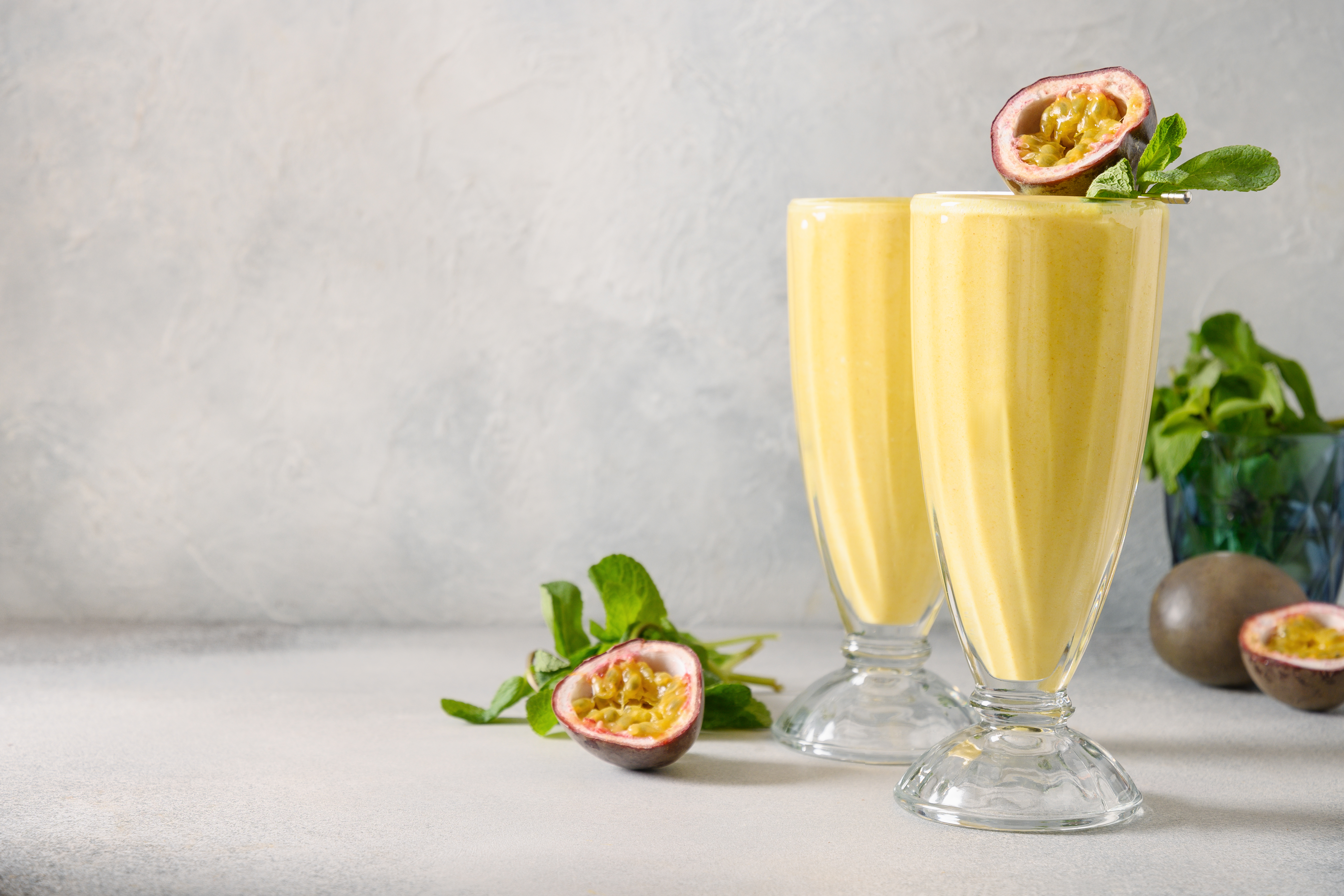
Lassi is a traditional Indian drink made from yogurt, water, and spices, often enjoyed as a refreshing beverage in hot weather. The fermentation of yogurt produces beneficial probiotics that support gut health and digestion. Lassi is typically flavored with spices like cardamom, cumin, or saffron, which add depth to its taste and offer additional health benefits. Sweet lassi, made with sugar or fruit, is a popular variation, while savory lassi includes salt and spices for a more robust flavor. The probiotics in lassi help maintain a healthy gut microbiome, improve digestion, and boost the immune system. Lassi's cooling properties make it an ideal drink for balancing the body's heat, especially during the hot summer months. Incorporating lassi into the diet can provide a delicious and healthful way to support gut health and overall well-being.
11. Pickles: The Crunchy Fermented Snack
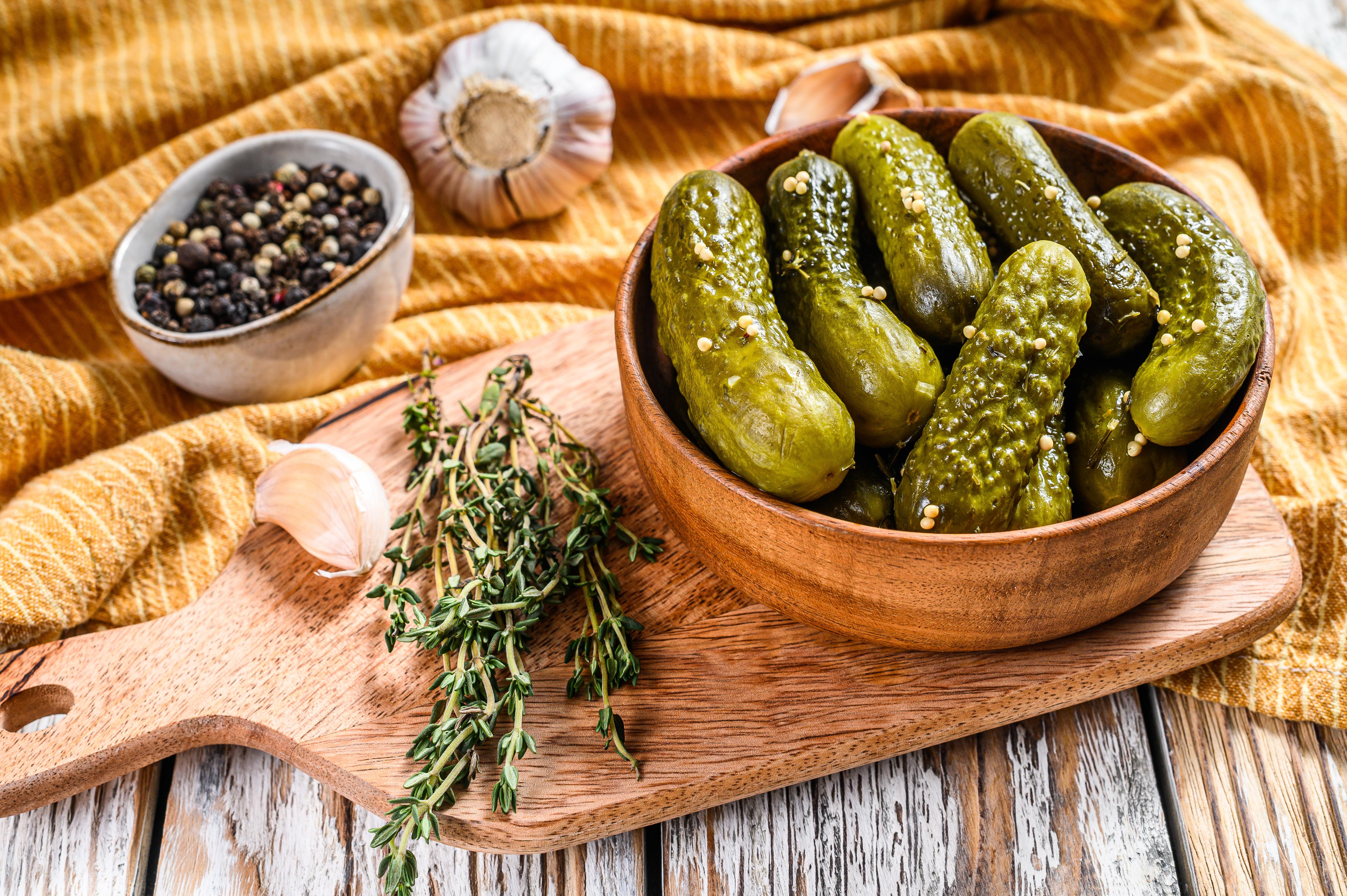
Pickles, commonly made from cucumbers, are a popular fermented food enjoyed worldwide. The fermentation process involves immersing cucumbers in a brine solution, allowing beneficial bacteria to thrive and preserve the vegetables. This process not only enhances the flavor and texture of pickles but also increases their nutritional value. Pickles are rich in probiotics, which support gut health by promoting a healthy balance of gut bacteria and improving digestion. They are also low in calories and contain vitamins and minerals that contribute to overall health. Pickles can be enjoyed as a crunchy snack, added to sandwiches, or used as a flavorful topping for various dishes. While not all pickles are fermented (some are simply preserved in vinegar), choosing naturally fermented pickles can provide the probiotic benefits essential for gut health.
12. Injera: Ethiopia’s Tangy Fermented Flatbread
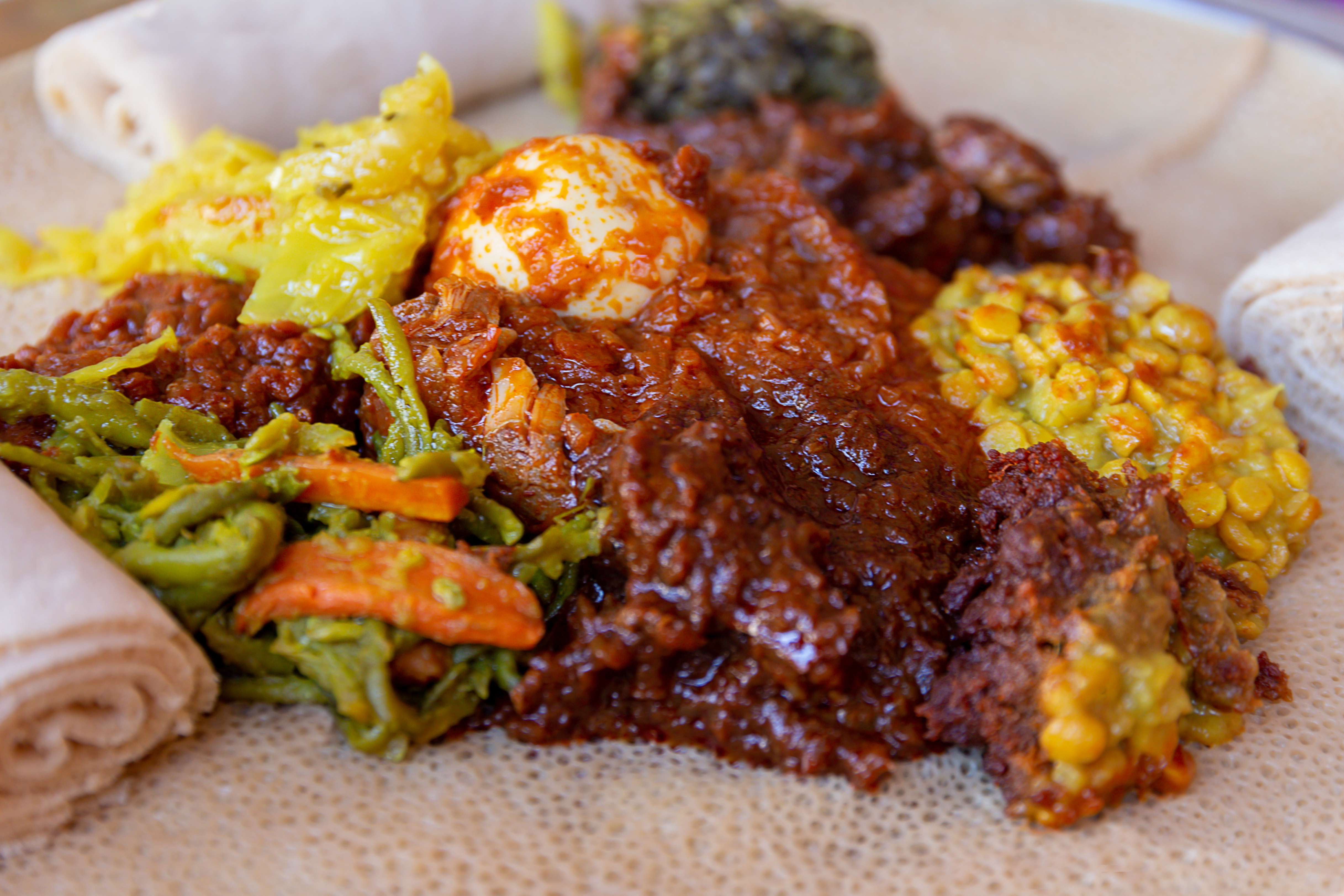
Injera is a spongy, sour flatbread made from teff flour and water, fermented over several days to create its signature tang and airy texture. A staple in Ethiopian and Eritrean cuisine, injera is both plate and utensil, used to scoop up stews and vegetables. The fermentation process fosters natural probiotics, which support digestion and feed healthy gut bacteria. Teff itself is also high in iron, fiber, and resistant starch—making injera a functional food that blends cultural tradition with gut-friendly nutrition. If you’re looking to diversify your probiotic intake beyond dairy, injera is a delicious, gluten-free gateway.
13. Gari: West Africa’s Fermented Cassava Crumble
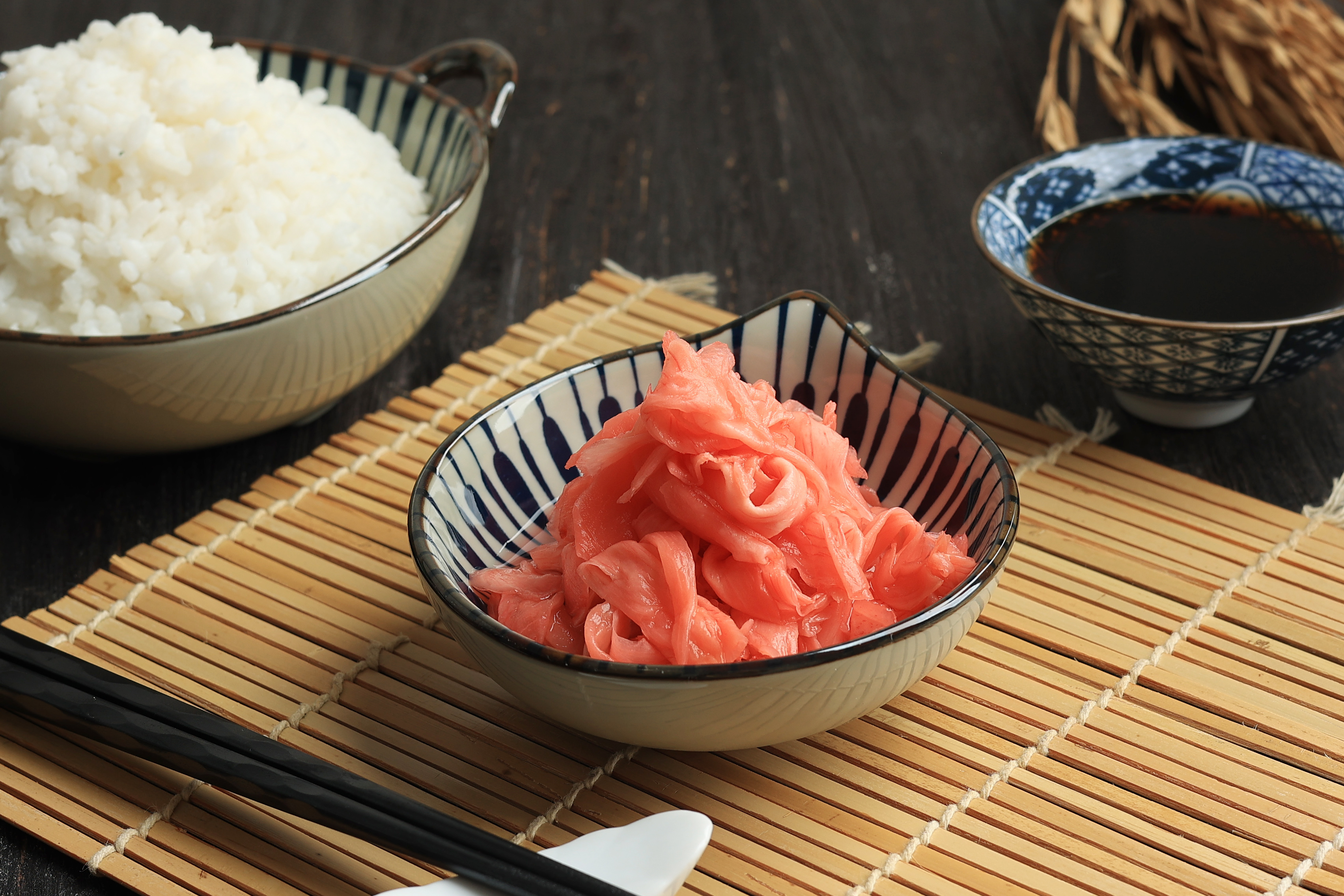
Gari, a fermented food from West Africa, is made by peeling, grating, and fermenting cassava root for several days before roasting it into dry, crispy granules. Slightly sour and pleasantly nutty, gari is often rehydrated and eaten as porridge or used as a side dish with stews. The fermentation process removes toxins naturally present in raw cassava while encouraging probiotic growth, aiding both safety and digestion. High in resistant starch, gari acts as a prebiotic—feeding good gut bacteria and supporting colon health. It’s a shelf-stable, versatile pantry staple with deep roots in West African food culture and gut wellness.
14. Dhokla: India’s Fermented Savory Cake
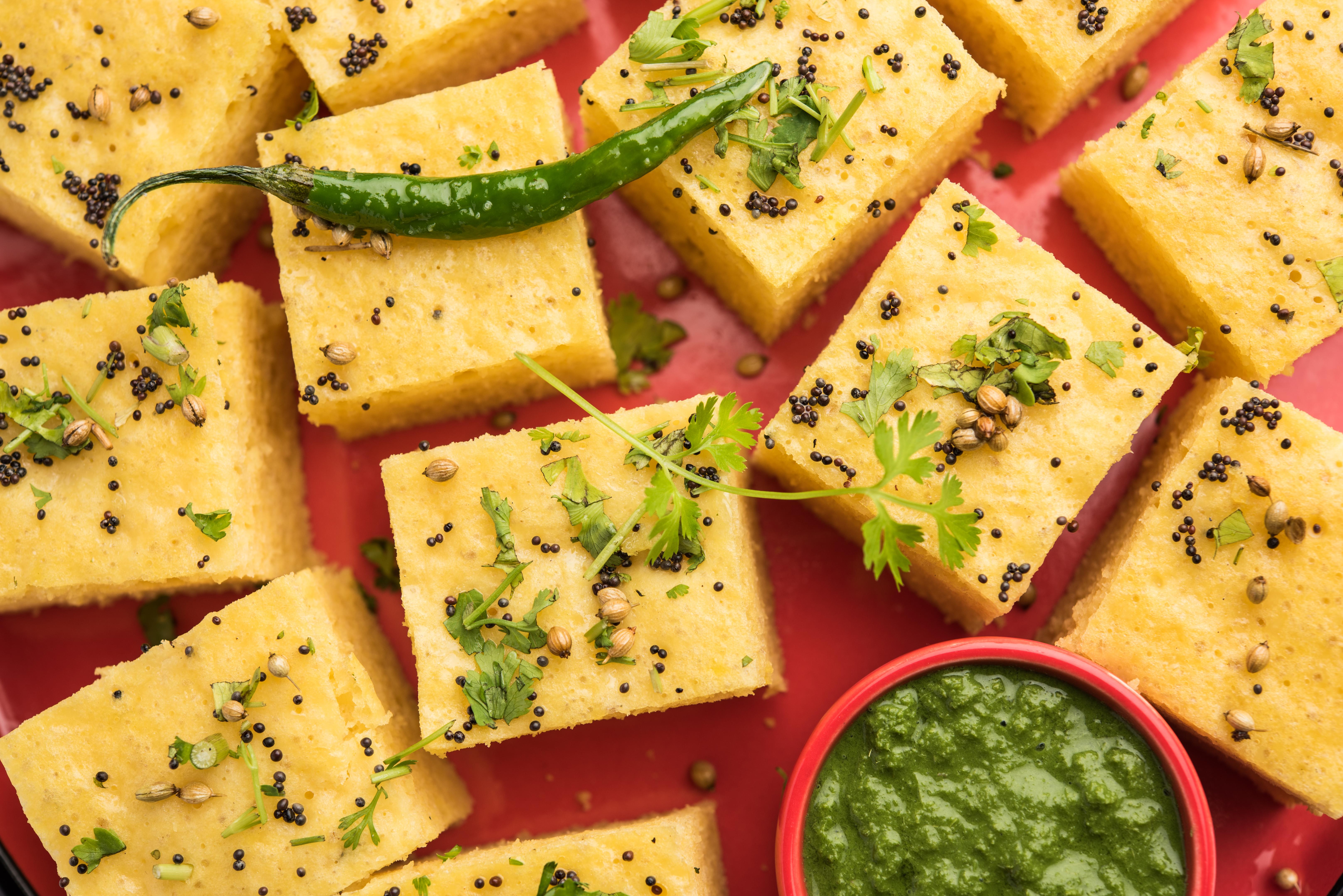
Dhokla is a light, fluffy snack from India made by fermenting a mixture of rice and chickpea flour, then steaming it into a spongy cake. This gentle fermentation not only enhances digestibility but introduces gut-friendly bacteria that support microbial diversity. Traditionally seasoned with mustard seeds, curry leaves, and green chilies, dhokla delivers both probiotic and anti-inflammatory benefits. Chickpea flour adds protein and fiber, while the fermentation process reduces phytic acid, improving mineral absorption. Eaten as breakfast or a savory snack, dhokla is proof that probiotic-rich foods don’t need to be sour or drinkable—they can be flavorful and filling, too.
15. Poi: Hawaii’s Probiotic Purple Mash
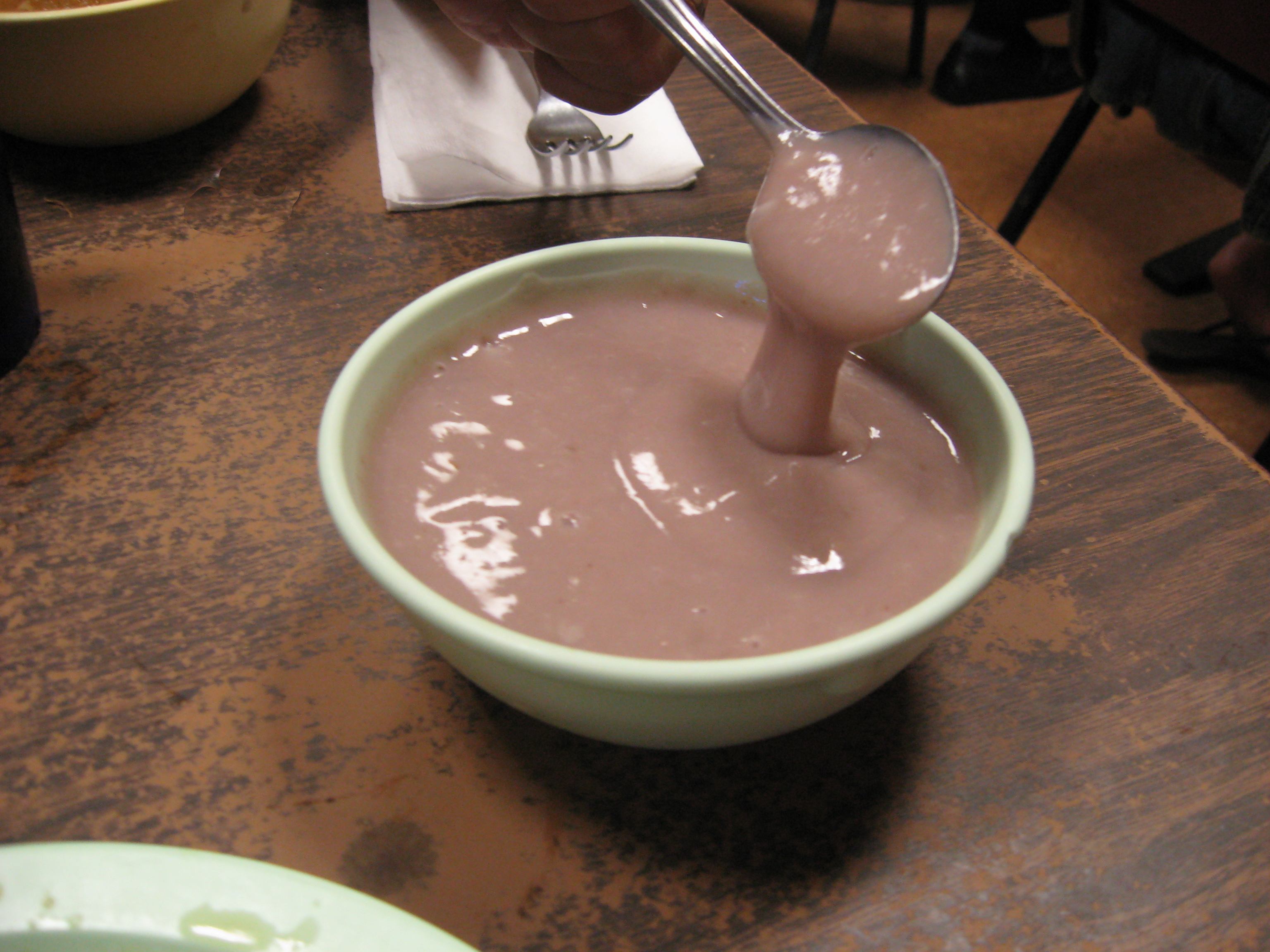
Poi is a traditional Hawaiian staple made by fermenting mashed taro root. Thick, slightly tangy, and naturally purple, poi is a gut-healing food rich in probiotics, fiber, and complex carbohydrates. The fermentation gives it a mildly sour taste and increases its digestibility, especially for those with sensitive stomachs. Poi is hypoallergenic and gentle on the digestive system, making it a favorite for infants and elders alike. Taro itself contains prebiotics that nourish beneficial bacteria. Combined with the fermentation process, poi becomes a double-duty gut-supporter. It’s a simple yet powerful example of indigenous wisdom rooted in food-as-medicine philosophy.
16. Fermented Bamboo Shoots: Southeast Asia’s Gut-Boosting Secret
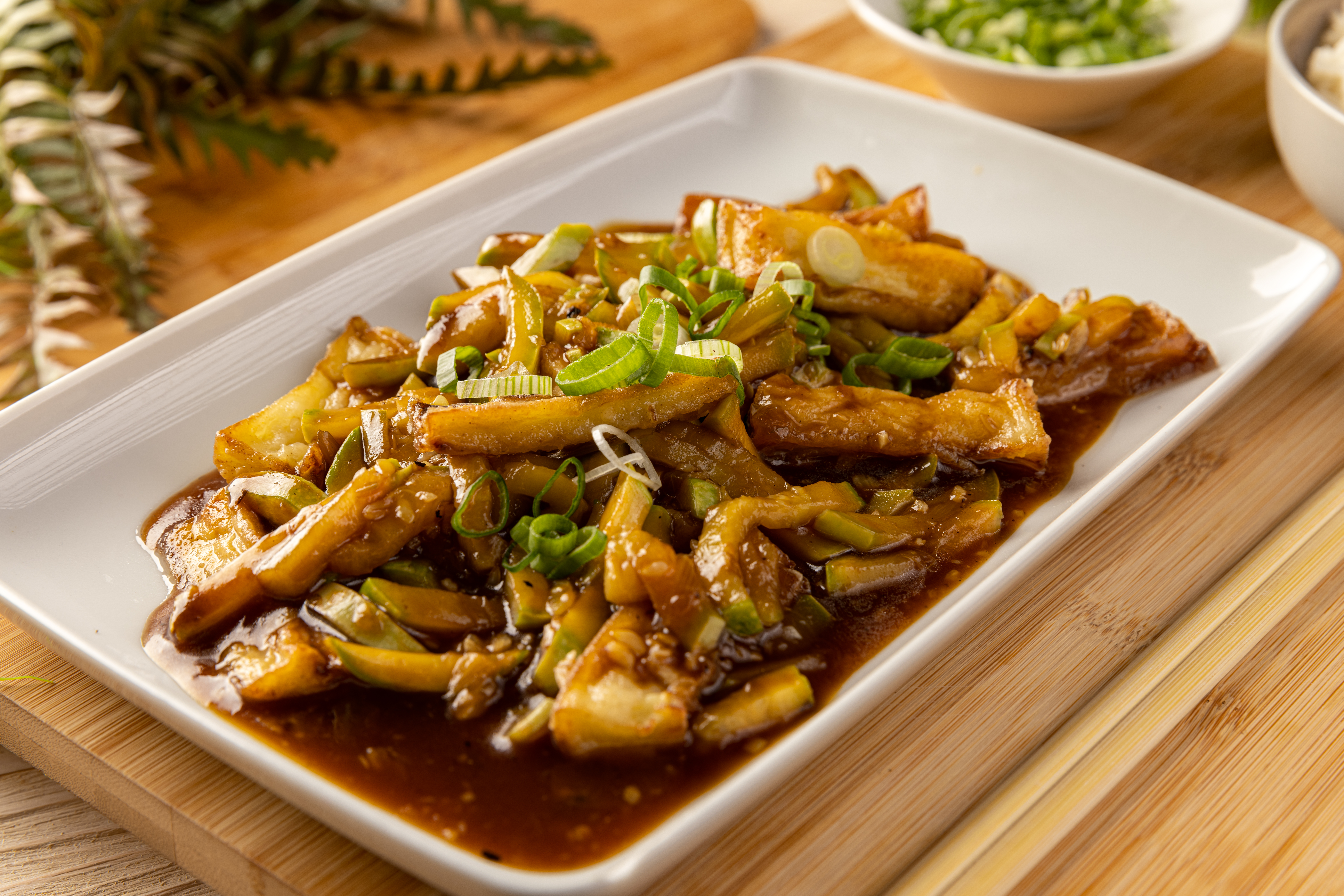
Fermented bamboo shoots are a culinary staple across Southeast Asia, especially in countries like Thailand, Laos, and the northeastern states of India. Fresh bamboo shoots are sliced, soaked, and naturally fermented in brine, giving them a tangy, earthy flavor and boosting their probiotic content. This fermentation process not only preserves the shoots but also enhances their fiber content and digestibility. Traditionally served with sticky rice or in soups, fermented bamboo shoots help balance gut flora and improve nutrient absorption. Rich in antioxidants and enzymes, they offer a plant-based path to gut healing that’s flavorful, sustainable, and deeply traditional.
17. Sourdough Bread: The Probiotic-Rich Artisan Loaf
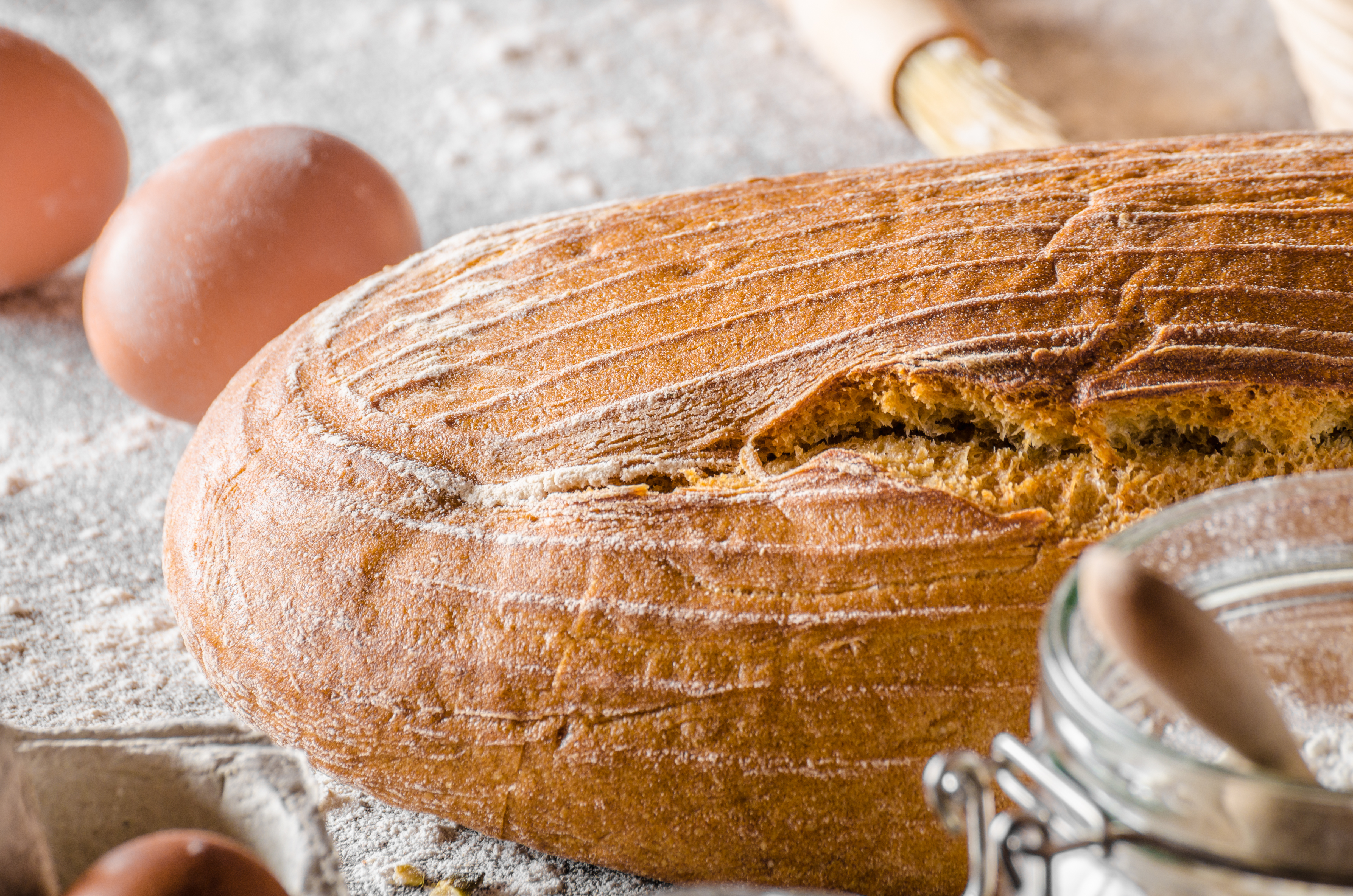
Sourdough bread, made by fermenting dough with wild yeast and lactic acid bacteria, is more than just a hip bakery trend—it’s a probiotic powerhouse. The long fermentation process breaks down gluten and phytic acid, making nutrients more bioavailable and the bread easier to digest, even for some with sensitivities. Unlike commercial yeasted bread, sourdough contains live cultures that benefit gut health and reduce bloating. Its mildly tangy flavor pairs perfectly with both savory and sweet toppings. Whether enjoyed as toast, sandwich bread, or part of a charcuterie spread, sourdough is a delicious way to make probiotics part of your daily routine.
18. Togwa: Tanzania’s Fermented Cereal Drink
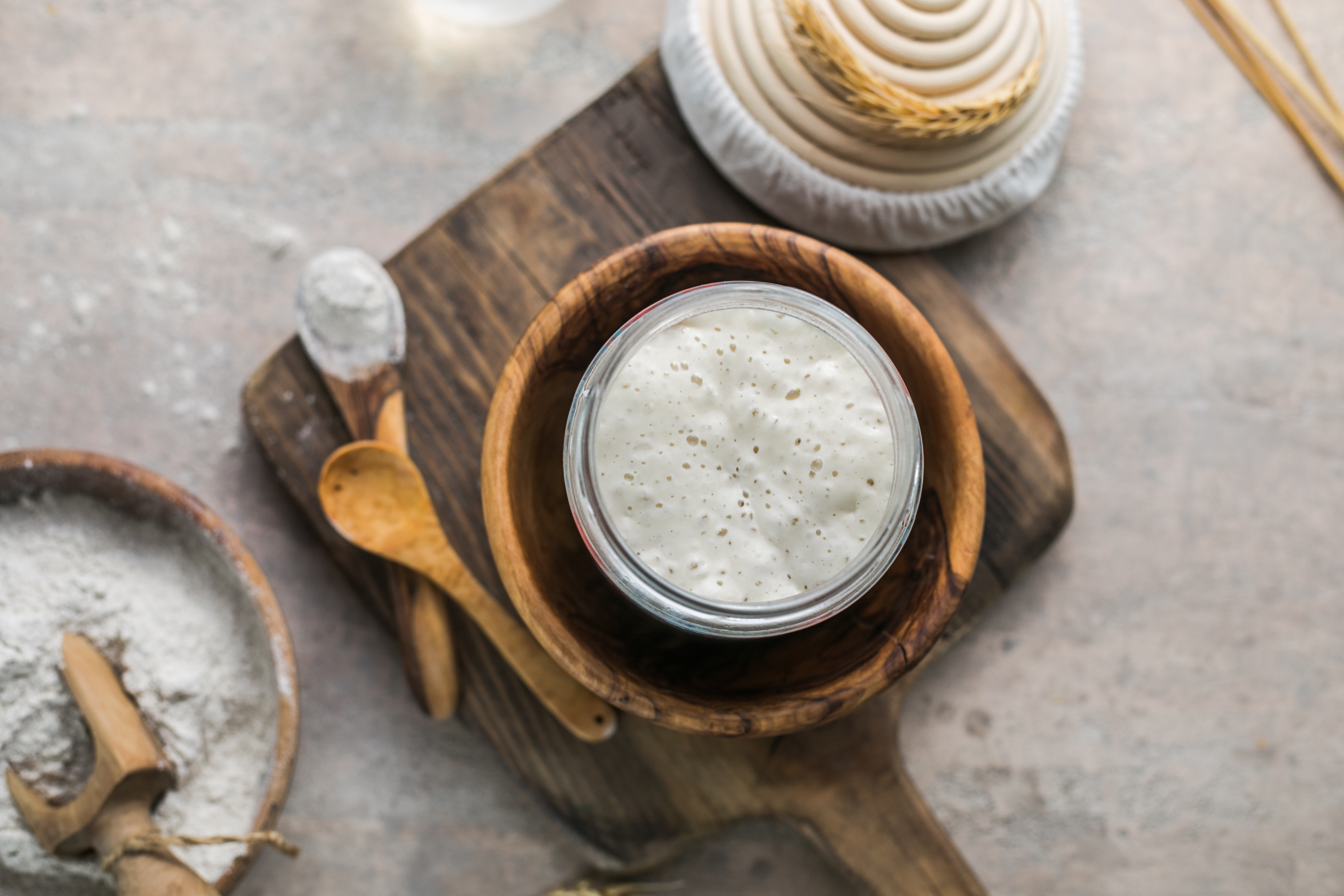
Togwa is a traditional Tanzanian beverage made from fermented maize or millet flour. Slightly tangy and thick, this drink is naturally rich in probiotics and enzymes that enhance digestion and strengthen gut health. It’s typically consumed as a breakfast or snack and sometimes flavored with lemon, sugar, or spices. The fermentation reduces antinutrients and makes key minerals like iron and zinc more absorbable. Togwa is also hydrating, filling, and culturally rooted—offering a non-dairy probiotic option that’s both nourishing and sustainable. As African fermented foods gain global recognition, togwa stands out as a functional, everyday tonic for gut vitality.
19. Doogh: Iran’s Fermented Yogurt Beverage
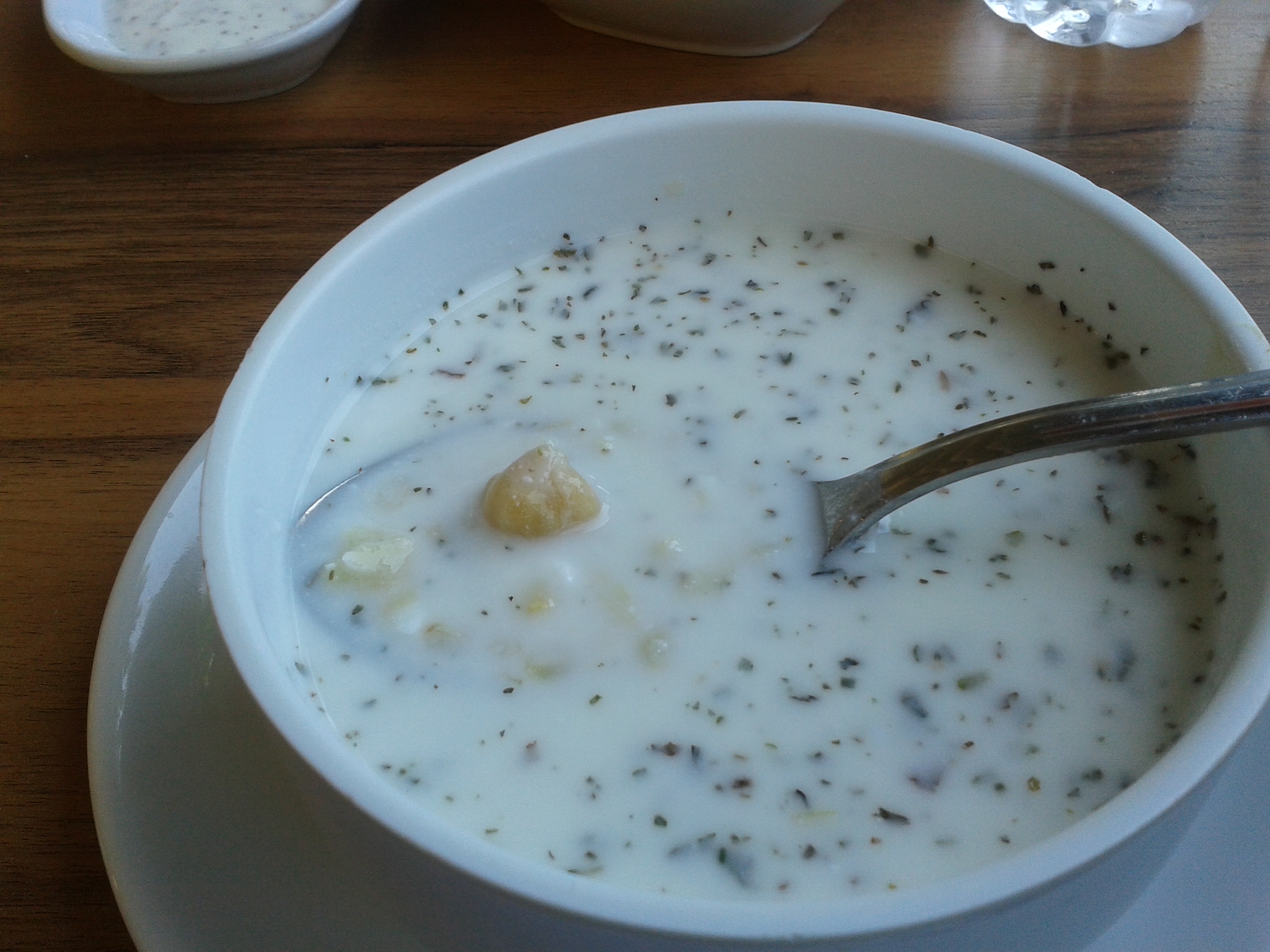
Doogh is a traditional Iranian drink made by diluting yogurt with water and seasoning it with mint or salt. Lightly carbonated through natural fermentation, doogh is refreshing, digestive-friendly, and rich in probiotics. It’s served chilled, often alongside rice-based meals, to aid digestion and cool the body. Unlike sugary smoothies or bottled drinks, doogh is naturally low in calories and supports hydration while promoting gut balance. The combination of yogurt’s probiotics and mint’s anti-inflammatory properties makes doogh a uniquely calming beverage for the stomach. It’s a timeless reminder that gut health doesn’t have to be complicated—or bland.
20. Fermented Black Garlic: Sweet, Funky, and Functional
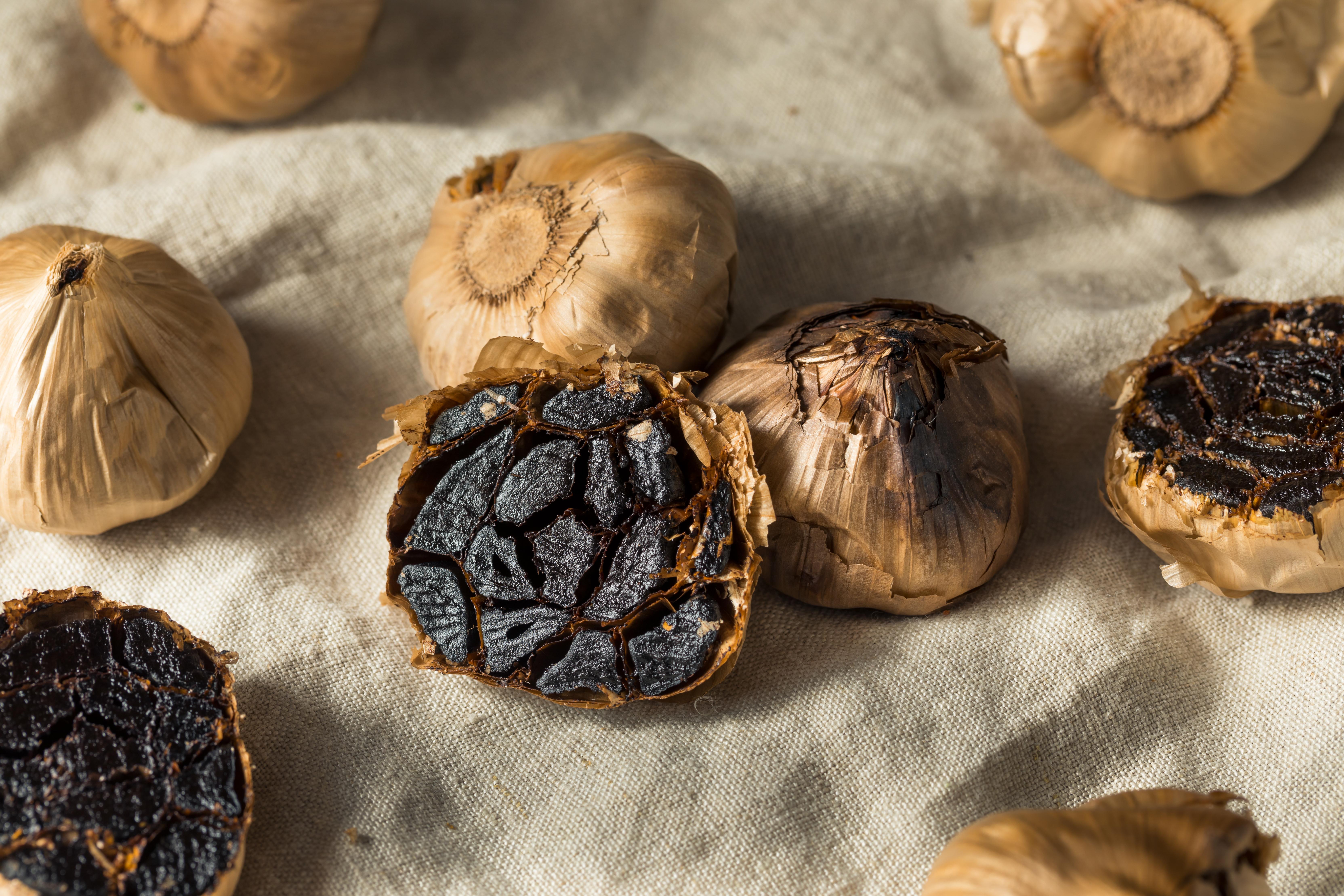
Black garlic isn’t just a flavor bomb—it’s a gut-healing marvel. Made by fermenting whole garlic bulbs under controlled heat and humidity, black garlic becomes sweet, soft, and rich in umami. While the fermentation reduces garlic’s pungency, it intensifies its antioxidant profile and introduces prebiotic properties that feed healthy gut bacteria. Black garlic is especially rich in S-allyl cysteine, a compound linked to cardiovascular and immune health. Use it in salad dressings, sauces, or as a spread to add complexity and health benefits in one hit. It’s proof that fermentation can transform even the boldest ingredients into gut-friendly delicacies.
21. Shrubs: The Ancient Drinking Vinegar Making a Comeback

Shrubs, or drinking vinegars, are tangy syrups made by fermenting fruit with sugar and vinegar—a preservation method with roots in colonial America and the Middle East. When mixed with water or soda, they become a refreshing, probiotic-rich beverage that supports gut health. The vinegar component aids digestion, while fermented fruit infuses antioxidants and natural enzymes. Shrubs offer a low-sugar alternative to commercial sodas and can be customized with herbs or spices like ginger, rosemary, or turmeric for added anti-inflammatory benefits. Whether sipped before meals or used as a cocktail base, shrubs are a stylish, functional nod to fermentation’s flavorful side.
From creamy yogurt to fizzy kombucha, and from tangy injera to earthy natto, fermented foods aren’t just delicious—they’re alive, dynamic, and deeply healing. Across continents and cultures, these probiotic-rich staples have stood the test of time, not only for their flavors but for their transformative effects on digestion, immunity, and overall gut health. By nurturing the trillions of microbes that call your gut home, fermented foods help balance your body from the inside out—naturally and sustainably. Whether you're new to fermentation or ready to expand your palate, our list of 21 Delicious Fermented Foods From Around the World for Natural Gut Healing offers a flavorful roadmap to better health. Embracing these foods means reconnecting with ancestral wisdom, supporting your microbiome, and turning everyday meals into acts of nourishment. So go ahead—taste boldly, ferment often, and let your gut thank you with every vibrant, tangy, life-giving bite.